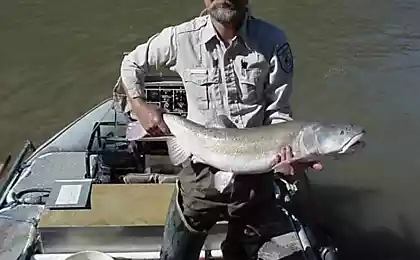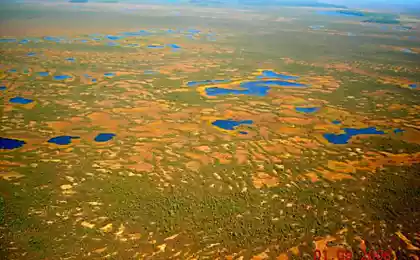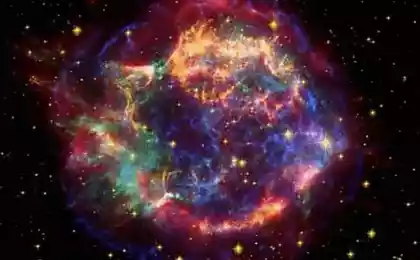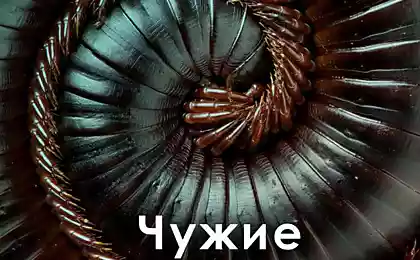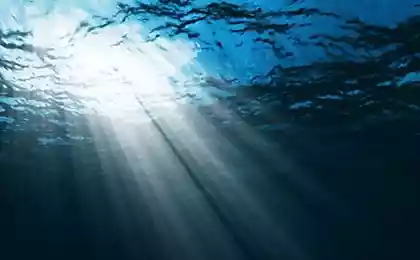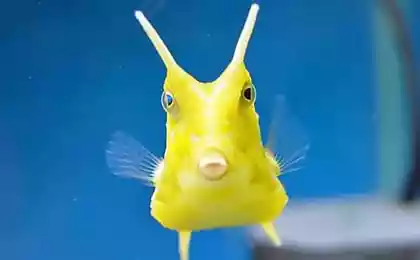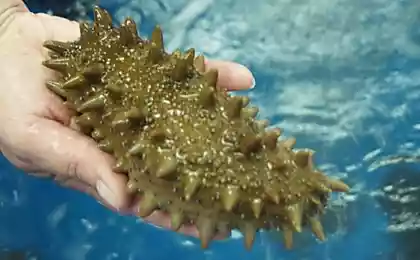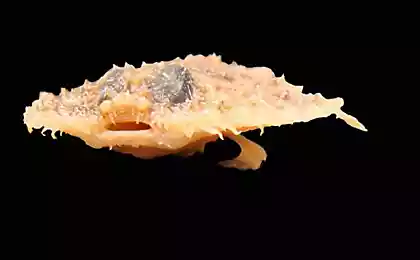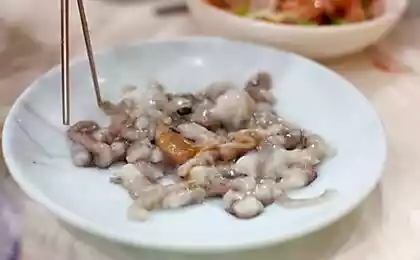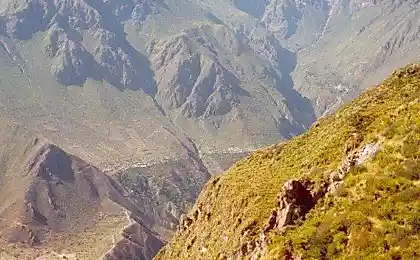1211
The largest freshwater invertebrate
In the rivers of Tasmania can meet the largest freshwater crayfish in the world. Even in the recent past, these cancers can grow up to 80 centimeters in length and more, they weighed at least five kilograms. Now Tasmanian crayfish have on average no more than 40-60 centimeters in length and weighs only 3.4 kilograms. And all because to gigantic proportions of these individuals to live simply do not have time, they are caught.
In Latin they are called Astacopsis gouldi, until recently, copies of 80cm in length and weighing more than 5 kg were normal. Today giants almost never occur, and average parameters of crustaceans - about 50 cm at a weight of 3-4 kg.
10 photos
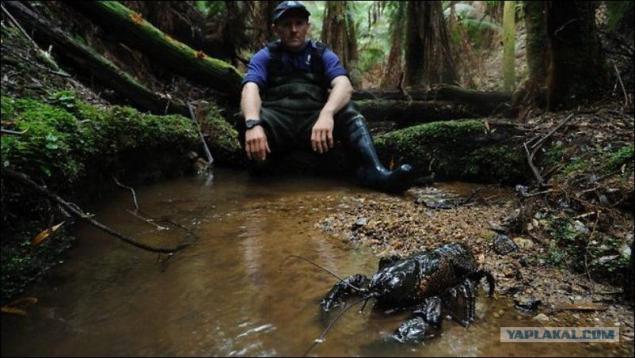
Those who wish to see this marvel of nature with your own eyes you need to go to the north of the island, where there is a slow-moving rivers and streams of warm (18 degrees) and very clean water - is there still a giant crabs are found.
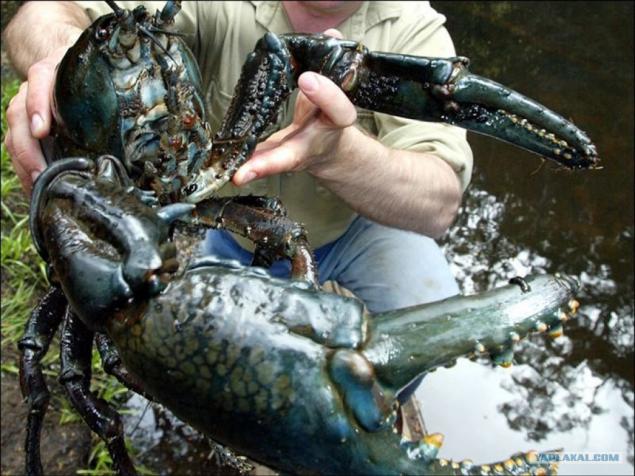
What is the biggest crabs eat? Eat the largest crabs in the world of all that is found in ponds. This decaying leaves and wood, fish as well as aquatic invertebrates. Sidestep arthropods platypus, big fish and water rats. All of them are the natural enemies of the Tasmanian Cancer.
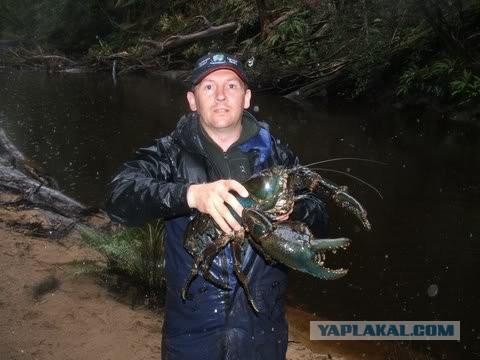
This animal is waiting to seize their prey, and its bite can tear off your finger. Having a black carapace, creature merges with the rocky bottom of the river and its not that easy to spot any predators or his victim. But do not worry, they are quite rare.
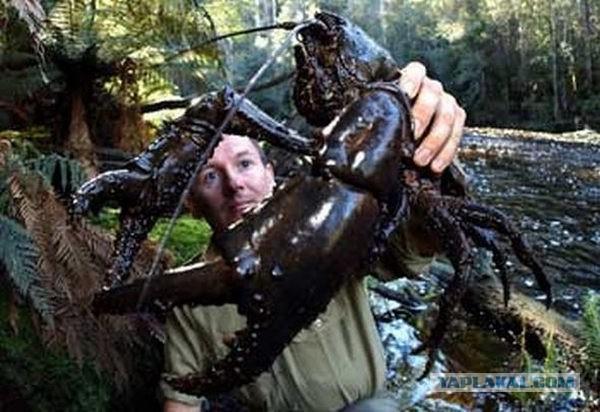
Astacopsis gouldi are centenarians. Age Tasmanian cancer can reach 40 years. In addition, these individuals very long reproductive process. In males, reproductive age begins about 9 years old, female and that later - in 14 years. By the way, the male crabs tend to give birth to a "harem" of several females. But breeding offspring happens only once in two years. Females its abdominal legs lay eggs fall. And the young, the length of which does not exceed 6 millimeters, only hatch next summer.
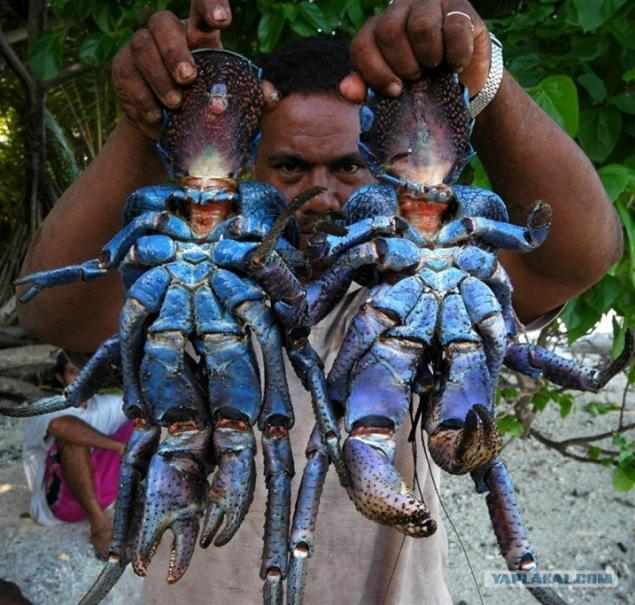
Not surprising is the fact that the largest crabs in the world are on the verge of extinction. It happened because of the active agricultural activities of man (which resulted in rapidly declining quality of water in rivers and crayfish are losing because of this part of the habitat) and the over-fishing of rivers.
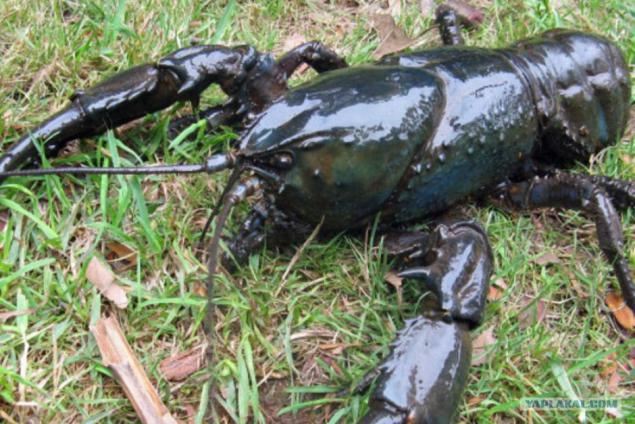
By the way, this kind of rare cancers already recognized in Australia, even passed a law that prohibits the catch Astacopsis gouldi without special permission. Well, violators will be punished ruble. The penalty amounts to 10 thousand dollars. Incidentally, the name referring to the crayfish given in honor of the naturalist from Australia named John Gould.
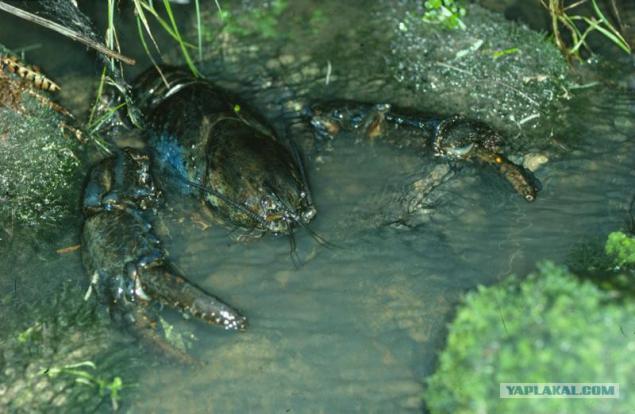
EIGHT
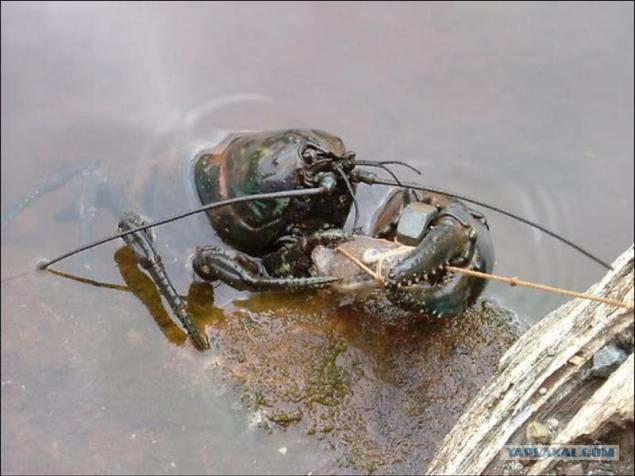
NINE
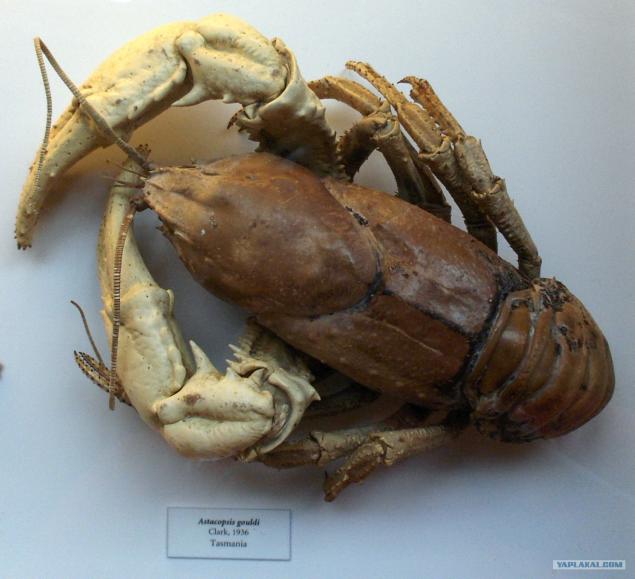
Source:
In Latin they are called Astacopsis gouldi, until recently, copies of 80cm in length and weighing more than 5 kg were normal. Today giants almost never occur, and average parameters of crustaceans - about 50 cm at a weight of 3-4 kg.
10 photos

Those who wish to see this marvel of nature with your own eyes you need to go to the north of the island, where there is a slow-moving rivers and streams of warm (18 degrees) and very clean water - is there still a giant crabs are found.

What is the biggest crabs eat? Eat the largest crabs in the world of all that is found in ponds. This decaying leaves and wood, fish as well as aquatic invertebrates. Sidestep arthropods platypus, big fish and water rats. All of them are the natural enemies of the Tasmanian Cancer.

This animal is waiting to seize their prey, and its bite can tear off your finger. Having a black carapace, creature merges with the rocky bottom of the river and its not that easy to spot any predators or his victim. But do not worry, they are quite rare.

Astacopsis gouldi are centenarians. Age Tasmanian cancer can reach 40 years. In addition, these individuals very long reproductive process. In males, reproductive age begins about 9 years old, female and that later - in 14 years. By the way, the male crabs tend to give birth to a "harem" of several females. But breeding offspring happens only once in two years. Females its abdominal legs lay eggs fall. And the young, the length of which does not exceed 6 millimeters, only hatch next summer.

Not surprising is the fact that the largest crabs in the world are on the verge of extinction. It happened because of the active agricultural activities of man (which resulted in rapidly declining quality of water in rivers and crayfish are losing because of this part of the habitat) and the over-fishing of rivers.

By the way, this kind of rare cancers already recognized in Australia, even passed a law that prohibits the catch Astacopsis gouldi without special permission. Well, violators will be punished ruble. The penalty amounts to 10 thousand dollars. Incidentally, the name referring to the crayfish given in honor of the naturalist from Australia named John Gould.

EIGHT

NINE

Source:
